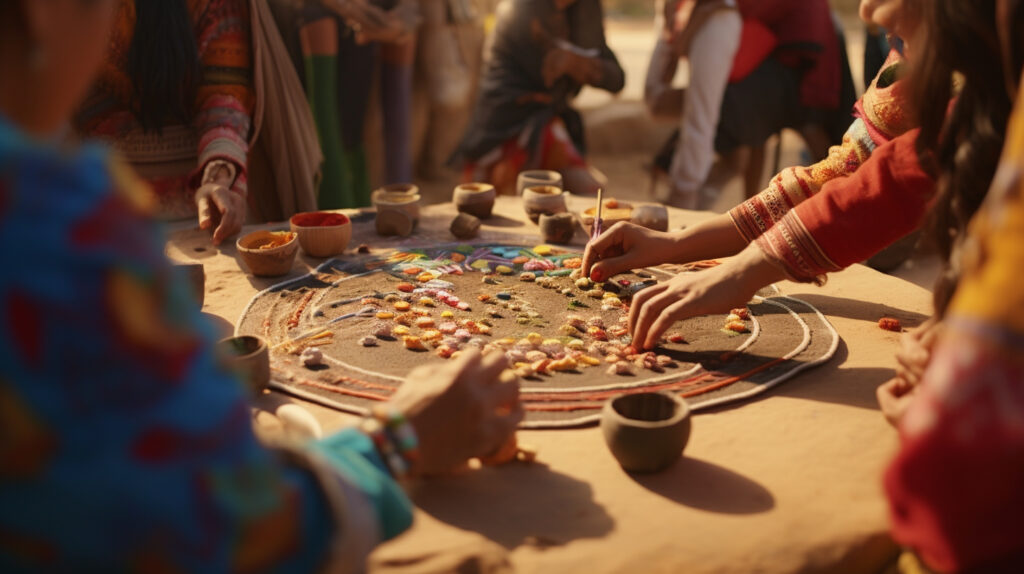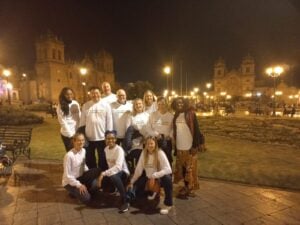Hey there! Are you someone who loves to immerse yourself in different cultures and explore the world? If so, you’re going to love this article. We’re going to dive deep into the world of cross-cultural exchange through volunteering for cultural immersion.
Traveling to another country and experiencing its rich traditions, customs, and way of life is a truly transformative experience. It opens our eyes to new perspectives, broadens our understanding of the world, and allows us to develop a deeper appreciation for diversity.
In this article, we’ll discuss the meaning and importance of cultural immersion, explore the benefits of cross-cultural exchange, provide tips for choosing the right volunteer program, and give you insights on how to prepare yourself for an incredible cultural immersion experience. We’ll also delve into the various activities you can participate in during your time abroad, highlight the challenges and rewards you may encounter, and discuss the impact of volunteering on sustainable development. Finally, we’ll talk about the importance of sharing your experiences and inspiring others to engage in cultural exchange.
So, are you ready to embark on a journey of cultural immersion? Let’s dive right in and discover the wonders this experience has to offer!

Understanding Cultural Immersion
Cultural immersion is an incredible opportunity that allows individuals to immerse themselves in a different culture and gain a deep understanding of its customs, traditions, and way of life. It goes beyond just visiting a new place as a tourist. Instead, it involves actively engaging with the local community, participating in their day-to-day activities, and building meaningful connections with the people.
Meaning and Importance of Cultural Immersion
Cultural immersion is about more than just sightseeing and checking off tourist attractions from your list. It is about truly experiencing a different culture, learning from it, and fostering a sense of empathy and understanding. This type of experience can broaden your perspective, challenge your assumptions, and help you develop a greater appreciation for diversity.
Benefits of Cross-Cultural Exchange
Engaging in cross-cultural exchange through cultural immersion can offer numerous benefits, including:
- Broadened Perspectives: Experiencing a different culture firsthand can expand your worldview, challenge stereotypes, and increase your cultural awareness.
- Language Acquisition: Immersion in a new culture provides a unique opportunity to learn a new language or improve your language skills through daily interactions with native speakers.
- Personal Development: Cultural immersion can lead to personal growth, fostering qualities such as adaptability, resilience, open-mindedness, and empathy.
- Enhanced Cultural Competence: By immersing yourself in a different culture, you develop a greater understanding and appreciation for cultural differences, promoting harmony and understanding in an increasingly globalized world.
Choosing a Volunteer Program
When it comes to choosing a volunteer program for cultural immersion, you want to make sure you select one that aligns with your interests and values. Here are some important considerations to keep in mind:
Researching Different Volunteering Opportunities
- Take the time to research and explore different volunteering opportunities that are available. This will help you find programs that are well-suited to your skills, interests, and goals.
- Look for programs that offer a variety of projects and activities. This will allow you to choose a program that aligns with your interests and provides a meaningful experience.
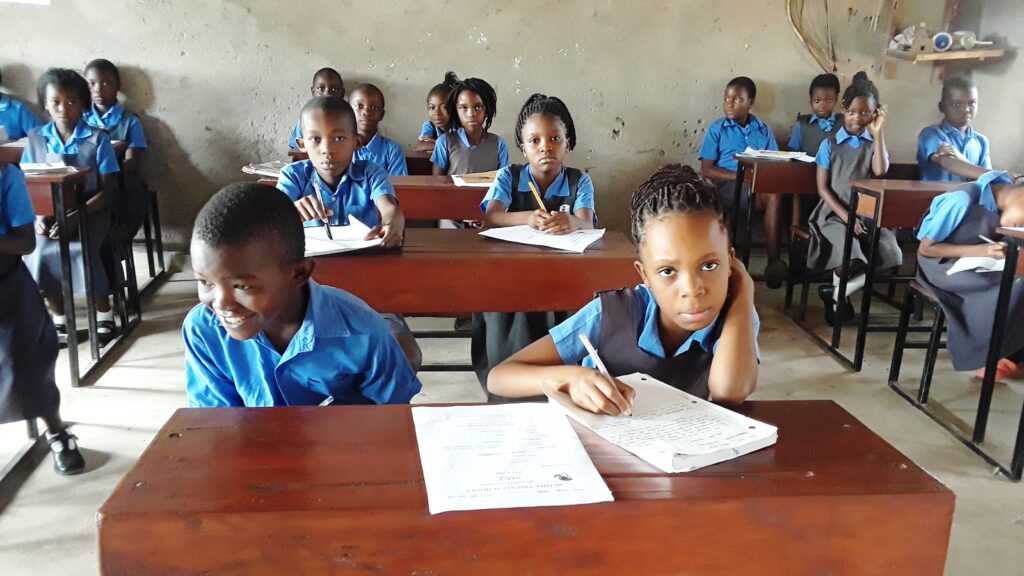
Considering Duration and Location
- Consider the duration of the volunteer program. Some programs may require a minimum commitment of a few weeks, while others may offer shorter-term options. Think about how much time you can realistically dedicate to the program.
- Think about the location of the volunteer program. Are you interested in immersing yourself in a specific culture or region? Consider whether you prefer a rural or urban setting, and whether you would like to be close to popular tourist attractions or off the beaten path.
Evaluating Ethical and Sustainable Practices
- It’s important to choose a volunteer program that upholds ethical and sustainable practices. Look for organizations that prioritize the well-being of local communities and work in collaboration with them.
- Consider whether the program is transparent about how the funds are used and whether they have a positive impact on the community. This will ensure that your time and resources are contributing to sustainable development.
Remember, the goal of cultural immersion is to have a meaningful and impactful experience. By carefully researching and selecting a volunteer program that aligns with your interests, you can ensure that you make a positive contribution while also gaining a deeper understanding of the local culture.
Preparing for Cultural Immersion
Preparing for cultural immersion is an essential step in ensuring a meaningful and enriching experience during your volunteer program. By taking the time to learn about local customs, traditions, and language, you can navigate your new environment with confidence and respect. Consider these key factors when preparing for your cultural immersion:
Learning about Local Customs and Traditions
- Researching and understanding the cultural norms, values, and practices of the community you will be immersed in is crucial. Take this opportunity to educate yourself on topics such as greetings, dress codes, dining etiquette, and religious practices.
- Familiarize yourself with the local customs and traditions that may differ from your own. This will not only show respect for the local culture but also help you avoid misunderstandings or unintentional faux pas.
- Remember to be open-minded and adaptable. Embrace the differences you encounter and approach them with curiosity rather than judgment.
Language Preparation and Communication Skills
- Learning a few basic phrases in the local language can go a long way in building connections and showing respect to the locals. Even simple greetings or expressions of gratitude can make a positive impression.
- Consider taking language classes or using language learning apps before your trip. This will help you communicate effectively and bridge the gap between you and the local community.
- It’s important to be patient with yourself and others when communicating in a language that may not be your native tongue. Embrace the opportunity to practice and improve your language skills.
Health and Safety Considerations
- Prioritize your health and well-being by researching any vaccinations or health precautions you may need to take before your departure. Consult with a medical professional or travel clinic for personalized advice based on your destination.
- Be mindful of local safety guidelines and customs. Familiarize yourself with emergency contact numbers, local laws, and any specific safety precautions recommended for your destination.
- It’s always a good idea to have travel insurance that covers medical emergencies and potential mishaps during your time abroad.
By adequately preparing for cultural immersion, you’ll be better equipped to navigate your volunteer program with cultural sensitivity and respect, fostering meaningful connections with the local community. Remember to approach your experience with an open mind and a willingness to learn, as this will enhance your personal growth and the impact you can make as a volunteer.
Cultural Exchange Activities
One of the most exciting aspects of volunteering for cultural immersion is the opportunity to engage in various cultural exchange activities. These activities allow you to connect with the local community, learn about their customs and traditions, and create meaningful connections. Here are some of the activities you can expect to participate in during your cultural immersion experience:
Engaging with Local Communities
- Community Service: Volunteering often involves working directly with local communities. You might participate in community development projects, such as building schools or houses, or assisting with healthcare initiatives.
- Teaching and Mentoring: Many volunteer programs provide opportunities to teach or mentor individuals in the community. You could teach English, provide vocational training, or offer academic support to students.
- Collaborative Projects: Engage in collaborative projects that foster interactions between volunteers and community members. This could involve organizing sports events, cultural performances, or workshops.
Participating in Traditional Festivals and Events
- Cultural Festivals: Immerse yourself in the vibrant celebrations of local festivals. Experience traditional music, dances, and rituals that reflect the rich cultural heritage of the community.
- Religious Celebrations: Participate in religious ceremonies or special events that hold significance for the local community. This will deepen your understanding of their beliefs and practices.
- Traditional Games and Sports: Take part in traditional games and sports, which can be a fun way of bonding with the locals. You might learn traditional board games, martial arts, or indigenous sports unique to the region.
Creating Connections through Arts and Crafts
- Artistic Workshops: Engage in artistic workshops where you can learn traditional crafts such as pottery, weaving, or painting. This can be an incredible opportunity to connect with local artisans and gain insight into their artistic techniques.
- Music and Dance: Discover the rhythm and melodies of a new culture by participating in music and dance activities. Learn traditional dances, play traditional instruments, or join local music ensembles.
- Culinary Experiences: Food is often an integral part of a culture. You may have the chance to participate in cooking classes, learn traditional recipes, or even engage in culinary exchanges where you can share your own culinary traditions.
Through these cultural exchange activities, you will not only have a truly immersive experience but also develop a deeper appreciation for the culture and traditions of the community you are volunteering in. These activities foster understanding, break down barriers, and promote meaningful connections.
“Cultural exchange activities during volunteering allow you to step outside your comfort zone and embrace a new culture with open arms. They provide a unique opportunity to learn, grow, and bridge the gap between different communities.”
Challenges and Rewards of Cultural Immersion
Embarking on a cultural immersion experience through volunteering can be incredibly rewarding, but it also comes with its fair share of challenges. Here, we will explore some of the challenges you may face during your journey, as well as the rewards that await you.
Overcoming Language and Cultural Barriers
One of the first challenges you may encounter when immersing yourself in a new culture is the language barrier. Communication plays a crucial role in building connections and understanding among people. However, not being able to speak the local language can make it harder to connect with locals and fully engage in the community.
But don’t fret! Language barriers can be overcome. Here are a few tips to help you navigate this challenge:
- Learn the basics: Take the time to learn a few key phrases and common expressions in the local language. Locals will appreciate your effort, and it will help you communicate better in day-to-day situations.
- Use technology: Utilize translation apps or language learning platforms to bridge the communication gap. These tools can assist you in finding the right words and understanding what others are saying.
- Practice active listening: Pay attention to body language, gestures, and facial expressions. Non-verbal communication can often convey meaning even without a shared language.
Beyond language, embracing a new culture may also introduce you to unfamiliar customs, traditions, and social norms. Adapting to these cultural differences can be challenging, but it’s an opportunity for personal growth and cultural understanding. Keep an open mind, be respectful, and observe how locals behave to navigate these cultural nuances effectively.
Gaining a Deeper Understanding of Global Issues
Engaging in cultural immersion often exposes you to global issues that may not be as apparent from your own perspective. By witnessing firsthand the challenges faced by the local community, you can develop empathy and a new understanding of societal issues.
In many parts of the world, volunteer programs work toward addressing issues such as poverty, education gaps, environmental conservation, and healthcare access. By actively participating in these initiatives, you have an opportunity to contribute to positive change and make a tangible impact on the lives of others.
Personal Growth and Self-Reflection
One of the most significant rewards of cultural immersion is personal growth. Stepping out of your comfort zone and immersing yourself in a new culture allows you to expand your horizons, challenge your assumptions, and develop a more nuanced worldview.
Living and volunteering in a different culture can be a transformative experience. It forces you to confront your own biases and preconceived notions, encouraging self-reflection and personal development.
By engaging with people from diverse backgrounds, you have the opportunity to develop empathy, resilience, and adaptability. These qualities will not only benefit you during your cultural immersion experience but also in all areas of your life.
In the words of writer and philosopher Mark Twain, “Travel is fatal to prejudice, bigotry, and narrow-mindedness.” Cultural immersion through volunteering offers a unique opportunity to break down barriers, connect with others, and grow as a global citizen.
Whether you’re teaching English in a remote village, building sustainable infrastructure, or working on environmental conservation efforts, the challenges and rewards of cultural immersion will leave a lasting impact on your life.
So, embrace the challenges, open your heart and mind, and get ready to embark on a rewarding journey of personal growth and cross-cultural exchange!
Volunteer Impact and Sustainable Development
When it comes to volunteering for cultural immersion, it’s not just about personal growth and learning. It’s also about making a positive impact on the local community and supporting sustainable development. Engaging in volunteer work can have a ripple effect that goes beyond the immediate experience. Here’s how volunteering can contribute to sustainable development:
Promoting Positive Change in Local Communities
Volunteer programs often focus on addressing specific challenges faced by local communities. Whether it’s education, healthcare, environmental conservation, or poverty alleviation, volunteers can contribute their skills and resources to create positive change. By working alongside local organizations and community members, volunteers can help implement sustainable solutions and drive long-term improvement.
Empowering Local Individuals and Groups
Volunteering is not just about providing external assistance; it’s also about empowering local individuals and groups to take charge of their own development. Volunteers can share their knowledge, skills, and resources with the community, but they should also prioritize capacity building and skill transfer. By training local individuals and nurturing their leadership abilities, volunteers can empower them to continue driving progress even after the program ends.
Supporting Sustainable Development Goals
The United Nations Sustainable Development Goals (SDGs) provide a framework for global development efforts. Volunteering can contribute to these goals in various ways. For example, by participating in education programs, volunteers can contribute to SDG 4 (Quality Education). By engaging in environmental conservation initiatives, they can support SDG 13 (Climate Action) and SDG 15 (Life on Land). By promoting gender equality and empowering women, they can contribute to SDG 5 (Gender Equality). These are just a few examples of how volunteering can align with the broader global development agenda.
When choosing a volunteer program, it’s important to consider whether the organization has a sustainable and long-term approach. Look for programs that prioritize community involvement, local partnerships, and capacity building. This will ensure that your volunteer efforts have a lasting impact on the community you’re serving.
“Volunteering is the ultimate exercise in democracy. You vote in elections once a year, but when you volunteer, you vote every day about the kind of community you want to live in.” – Unknown
Volunteering for cultural immersion can be a powerful way to make a difference in the world while also gaining a deeper understanding of different cultures. By promoting positive change, empowering local individuals, and supporting sustainable development goals, volunteers can contribute to a more inclusive and equitable society. So, if you’re considering a volunteer experience, embrace the opportunity to create a meaningful impact and inspire others to do the same.
Sharing Experiences and Inspiring Others
One of the most rewarding aspects of participating in a cultural immersion program is the opportunity to share your experiences and inspire others. By recounting your journey and the impact it had on your perspective, you can encourage others to engage in cross-cultural exchange and open their minds to new possibilities. Here are some ways you can share your experiences and inspire others:
Reflecting on Cultural Immersion Experience
Take the time to reflect on your cultural immersion experience and think about the lessons you’ve learned and the personal growth you’ve experienced. Consider writing a journal or blog where you can document your thoughts and emotions. Reflecting on your experiences can help you gain a deeper understanding of the cultural exchange and its impact on your life.
Using Social Media and Blogging Platforms
Social media platforms and blogging sites provide an excellent opportunity to share your cultural immersion journey with a wider audience. You can share photos, videos, and stories that highlight the unique aspects of the culture you experienced and the connections you made with local communities. By sharing your experiences, you can inspire others to explore different cultures and engage in similar experiences.
Encouraging Others to Engage in Cultural Exchange
As you share your experiences, don’t forget to encourage others to participate in cultural exchange programs. Talk to your friends, family, and colleagues about the benefits of immersing oneself in a different culture. Share the positive impact it had on your life and the connections you made. By advocating for cultural exchange, you can inspire others to step out of their comfort zones and embrace new opportunities.
Sharing your experiences and inspiring others can create a ripple effect, promoting a more interconnected and understanding world. Remember, even a small conversation or a social media post can have a significant impact on someone’s decision to participate in a cultural immersion program. So, don’t hesitate to share your stories and inspire others to embark on their own cross-cultural journey.
“The best way to learn about another culture is to experience it firsthand. By sharing your experiences and inspiring others, you can contribute to a more interconnected and understanding world.”
Conclusion
In conclusion, volunteering for cultural immersion is a powerful experience that allows you to explore different cultures, create lasting connections with local communities, and make a positive impact in the world. Through cross-cultural exchange, you gain a deeper understanding of global issues, develop new skills, and foster personal growth and self-reflection.
By choosing a reputable volunteer program like A Broader View Volunteers, you can ensure that you are participating in ethical and sustainable practices. This organization is dedicated to providing meaningful and life-changing experiences for volunteers while empowering local communities in over 32 countries.
As you prepare for your cultural immersion journey, take the time to learn about local customs and traditions, enhance your language skills, and prioritize your health and safety. These steps will help you fully immerse yourself in the culture and make the most out of your experience.
Engaging in cultural exchange activities, such as interacting with local communities, participating in traditional festivals and events, and creating connections through arts and crafts, will give you a deeper insight into the local way of life and foster connections that transcend borders.
While cultural immersion may come with challenges, such as overcoming language and cultural barriers, the rewards are immeasurable. You will gain a broader perspective, develop empathy and understanding, and contribute to positive change in the local communities you serve.
Cultural immersion is not just about the impact you have as a volunteer; it is also about the sustainable development goals you support. By promoting positive change in local communities, empowering individuals and groups, and working towards sustainable development, you become part of a global movement towards a more inclusive and equitable world.
After your cultural immersion experience, take the time to reflect on your journey and share your experiences with others. Use social media platforms and blogging to inspire and encourage others to engage in cultural exchange and make a difference in their own lives and communities.
In conclusion, volunteering for cultural immersion is a transformative experience that enriches your life while making a meaningful impact. Begin your cultural immersion journey today and embark on an adventure of a lifetime with A Broader View Volunteers. Together, we can create a world where cultural exchange and understanding are celebrated and cherished.
Frequently Asked Questions
- What is cross-cultural exchange?
Cross-cultural exchange refers to the interaction and sharing of ideas, beliefs, customs, and experiences between individuals from different cultural backgrounds. It allows for learning about and appreciating diverse cultures.
- What are the benefits of volunteering for cultural immersion?
Volunteering for cultural immersion provides numerous benefits, including gaining a deeper understanding and appreciation for different cultures, developing intercultural communication skills, fostering personal growth, and making a positive impact on local communities.
- How can volunteering enhance cultural immersion?
Volunteering allows individuals to actively engage with local communities, participate in cultural activities, interact with locals, and contribute to meaningful projects or initiatives. This hands-on experience enhances cultural immersion and promotes a deeper connection with the culture.
- Where can I find volunteering opportunities for cultural immersion?
There are various organizations, both local and international, that offer volunteering opportunities for cultural immersion. You can search for such opportunities online through volunteering platforms, contact local NGOs or community centers, or participate in organized cultural exchange programs.
- Do I need any specific skills or qualifications to volunteer for cultural immersion?
The required skills and qualifications for volunteering in cultural immersion programs may vary depending on the specific opportunity. While some projects may require specific skills like teaching or construction, many programs welcome volunteers with a genuine interest in learning about and engaging with different cultures, regardless of their background or experience.
-
Safe Solo Volunteering Abroad | Empowerment FemalesThrough Service with ABV
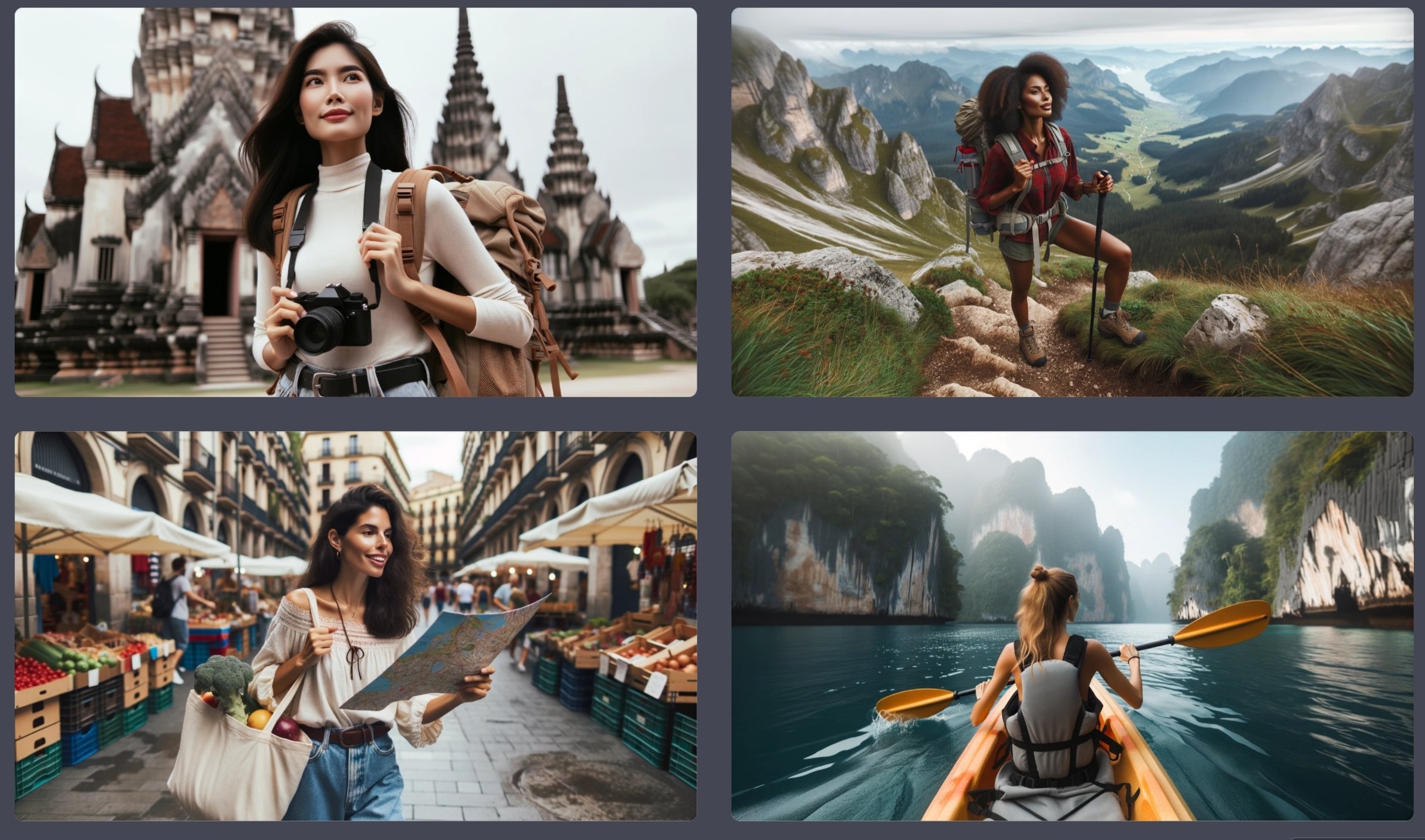
Embrace the adventure of a lifetime with ABV’s supported solo volunteering programs. Create lasting friendships, make a real difference, and explore the world safely under a supportive umbrella. Recommend Peru, Ecuador, Colombia, and more. Table of Contents Introduction to ABV and Solo Volunteering Traveling solo can be a thrilling yet daunting endeavor. A Broad View…
-
Empowerment Through Sustainable programs: Volunteer Opportunities in Peru Cusco
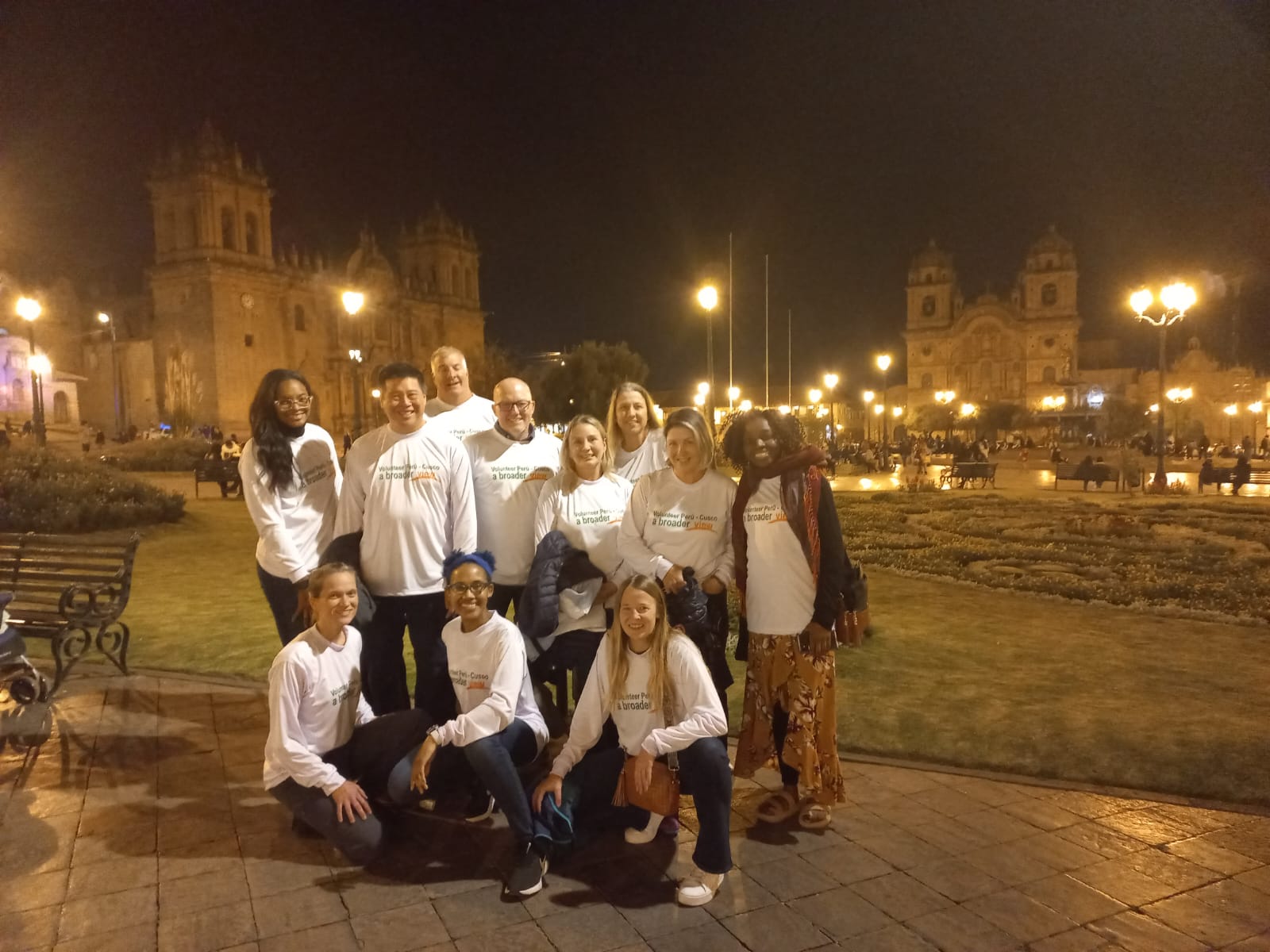
Discover empowering volunteer opportunities in Peru Cusco with www.abroaderview.org. Support sustainable programs and make a positive impact while gaining valuable experiences.
-
Midwives & Obstetricians: Empower Mothers & Babies Abroad

Discover how midwives and obstetricians from abroad can empower mothers and babies through the programs offered by www.abroaderview.org. Make a difference today.

